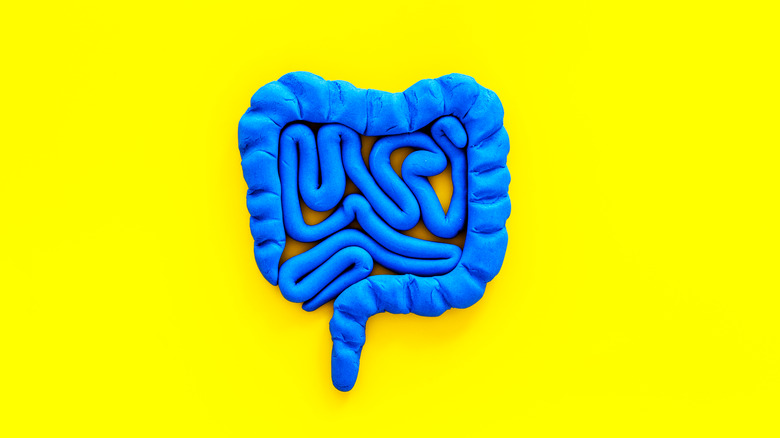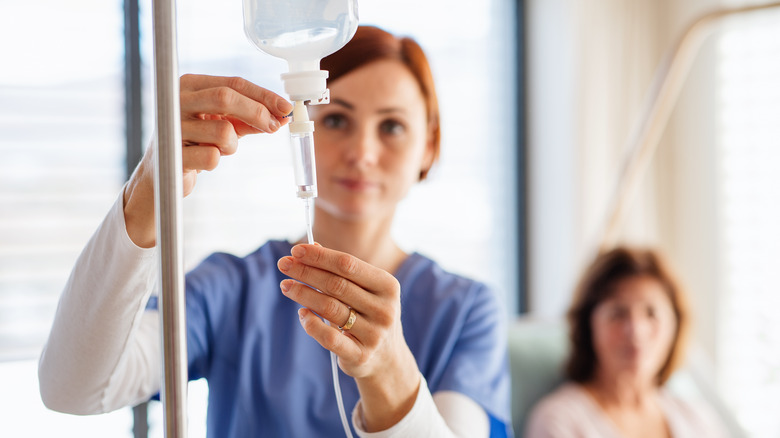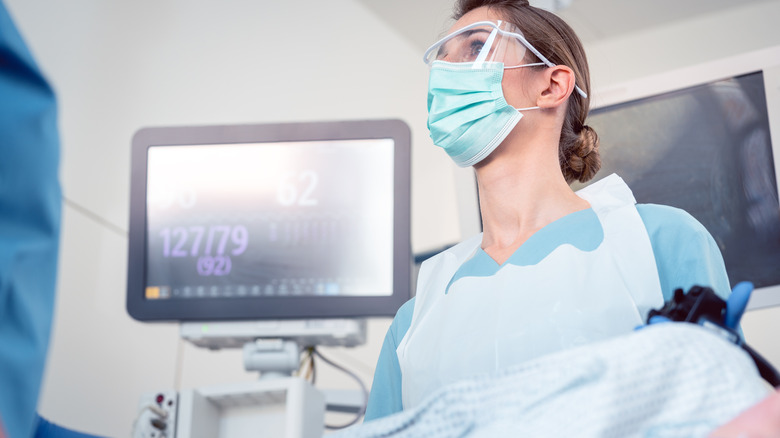What To Expect During Your First Colonoscopy
Many patients dread hearing their doctor recommend a colonoscopy, especially for those who have never had one. However, the importance of such a procedure for its ability to screen for and prevent colon cancer can't be emphasized enough (via New York-Presbyterian). If you're planning your first colonoscopy, here's what you can expect.
A colonoscopy requires advanced preparation, also known as the "colonoscopy prep." Some patients report that the prep is worse than the procedure itself. A 2008 poll of 1,870 colonoscopy patients found that 66% of patients reported no discomfort or minimal discomfort during the prep, and 88% reported no discomfort during the colonoscopy itself, per WebMD. Of the respondents, 98% said they would get a colonoscopy again.
Your doctor should provide you with a detailed colonoscopy prep protocol ahead of time, and it's imperative to follow the guidelines exactly as outlined. Generally, the prep involves stopping certain medications the day prior, consuming a clear, liquid diet the day before, and consuming laxatives that cause you to cleanse your bowel (via UpToDate). Although the number of laxatives and amount of liquid needed for a complete prep may seem excessive, it's necessary so your doctor can have clear visibility of your colon. If your colon is not cleaned out, your doctor may not be able to see polyps or other growths that need to be removed or biopsied.
On the day of your procedure
It's important to plan to have a ride home after the procedure. Because of sedation, most facilities require your ride to be a family member or friend, not a taxi driver or rideshare (via UpToDate). It's also recommended you arrive an hour before your scheduled procedure time and wear loose, comfortable clothing you can easily put back on after the procedure.
Upon arrival, nurses will prepare you for the procedure. You'll remove clothing and jewelry and change into a hospital gown. Women can expect to provide a urine sample to confirm negative pregnancy results. Some patients worry about feeling exposed during the procedure and can feel embarrassed; however, your body will be completely covered during the exam, and the doctor will be focused on the monitor displaying the camera's findings, not on your backside, asserts New York-Presbyterian. Then your vitals will be monitored, and you'll receive an IV line into your arm where hydration and sedation can be administered, per UpToDate.
During and after the procedure
The colonoscopy should be a very comfortable experience. Because you'll be sedated, you should not feel any pain and may be completely unconscious for the entire procedure. The procedure itself only takes about 30–60 minutes (via Mayo Clinic). Once you're sedated, the doctor will insert a colonoscope into your rectum. The colonoscope is long enough to pass through the entire length of the rectum and allows the doctor to pump air into your colon for better visibility.
After the procedure, you'll be transported to a room until you awaken from sedation. Sedation can cause non-serious side effects such as nausea, vomiting, and headaches in some individuals. However, many of these symptoms are not serious and subside shortly after the procedure, according to Johns Hopkins Medicine. Once you've awakened from sedation, your doctor may come and speak with you. It may be hard to remember what they say, so having a family member present may help. If your family member is not already there, nurses will call for your ride home as you get dressed and gather your belongings.



